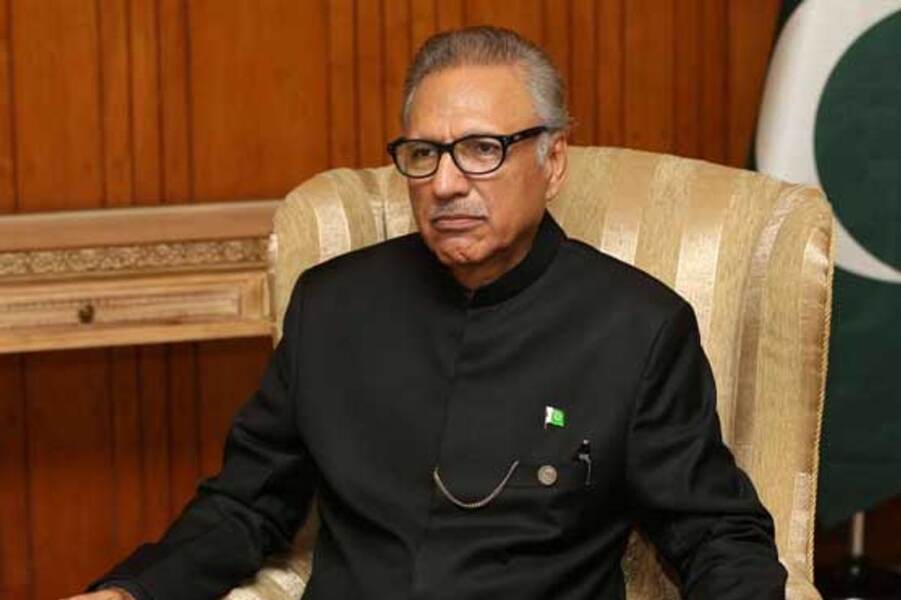Repeated failure
After being unsuccessful in preventing terror activities in Pakistan, Imran Khan and other officials have rather shifted their focus to blame games

Pakistan was rocked by a deadly bombing in Quetta, Baluchistan on April 21 when a car laden with detonators blew off at the car park of Hotel Serena. The notorious Tehreek-e-Labbaik Pakistan (TLP) claimed responsibility for this blast killing five and injuring scores of people. Crucially, the Chinese ambassador and several senior Chinese officials were staying in the hotel at the time of the blast. The security officials are, however, tight-lipped if the target was indeed the Chinese as the Baluch people are thought to be largely opposed to the Chinese presence in Baluchistan to facilitate the China Pakistan Economic Corridor (CPEC) which they perceive is counterproductive to their economic interests.
Prime Minister Imran Khan (PMIK), who appeared to be tough in banning the TLP, apparently to send a signal that he was coming down heavily on the radicals and terrorists, has opened a channel of communication with the TLP which was banned. Thus, things are still fluid and there are no indications as yet that PMIK is really serious in tackling the militant outfits or is afraid of taking them head-on so as not to upset the religious extremists. In a televised address on April 19, PMIK called upon the 50 Islamic countries to unite steadfastly and rally around the western countries to criminalise the insult of Prophet Muhammad. In a blistering attack on the western countries that have unleashed a slew of harsh measures to contain Islamic terror, the Pakistan PM accused the west of demonising Islam in the name of freedom of speech. He also called for a trade ban on those anti-Islamic countries which are targeting Islam. Such remarks are pointers to the fact that PMIK has realised that to remain in power he has to keep the zealots' lobby on the right side and that's why he has suddenly turned anti-west. A possibility is that he went on air to placate the TLP which is battling to regain the lost ground after the ban imposed by the Imran government. In his well-calibrated address, he touched upon the holocaust perpetrated against the Jews. It's also likely that taking advantage of the 'anti-Islam' policies pursued by the west, PMIK wants to emerge as a formidable leader of the Islamic world on the lines of Turkish President Erdogan chasing the same pipe dream.
Reacting to the April 21 Quetta blasts, Imran vowed that he would never allow the threat of terror to resurface again on Pakistani soil. Such statements had come in the past also but they haven't seen any result-oriented action on the ground. Terror linked incidents continue to happen. For example, the mine blast caused by the terrorists in the early part of the year killing scores of Hazaras were condemned by the Prime Minister, but here again, we see terror blasts happening at regular intervals at a set pattern. The PM and his Interior Minister, Sheikh Rashid insinuated India for the latest incident. Little do they realise that their intelligence system and security mechanism are not really geared up to foil such happenings. They lie in tatters, to say the least. India bashing has become a regular feature to conceal the chinks in their own armour.
Shifting the blame to India for everything perhaps also sent a feeler that a powerful section within the armed forces is not happy with PMIK agreeing, through back channels, to a thaw and reinforcing of ceasefire agreement decided on February 25 this year. Though there are no apparent reasons to doubt the statements of the Army Chief Gen Bajwa who seems pretty serious in a rapprochement, it would seem another coterie of generals and other senior army officials are opposed to any such move, and they are constantly trying to reverse the peace initiatives. Initially, when Gen Bajwa set the tone for peace, PMIK and his Foreign Minister Shah Mahmood Qureshi spoke in favour of peace but gradually they too seem to be drifting from their earlier stance. That means a more powerful anti-Indian lobby in the cantonment is at work. So it's a house divided attempting to dilute the doings.
In another instance, Pakistan President Arif Alvi, while speaking (April 22) to the US media, castigated India for the abrogation of Article 370 and altering the status of Jammu and Kashmir in August 5, 2019, and said that it was a precondition for normalising bilateral ties. It probably doesn't behove a head of state to give vent such feelings as such comments impair more than they repair the dented relationship. They also tend to undo whatever progress has been made to prevent the derailing of a developing thaw. This accusation apart, President Alvi charged India for using Afghanistan territory for directing its terror-related operations in Balochistan. Objectively, such charges are uncalled for, particularly when made by the President of a neighbouring country whose role is largely ceremonial. Lastly, the President claimed that US-Pakistan relations were on the mend. This claim, however, looks far-fetched at this moment and only time will tell how much the US trusts Pakistan.
The writer is a retired IPS officer, a security analyst and a former National Security Advisor to the PM of Mauritius. Views expressed are personal



